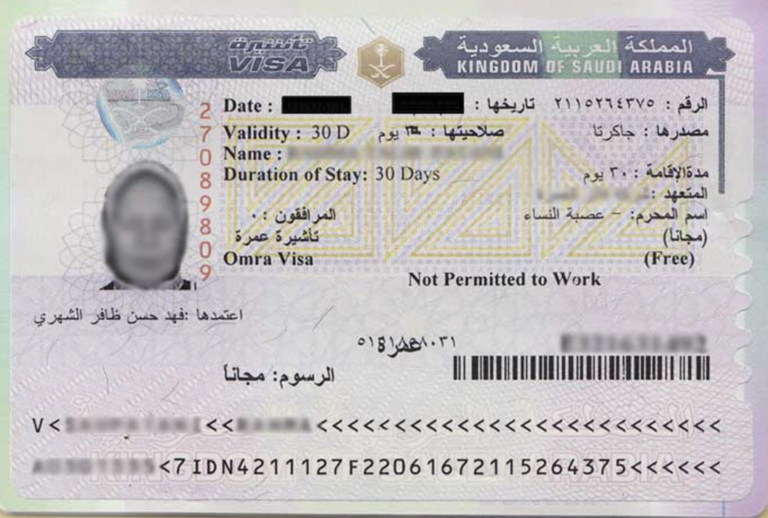The Most Powerful Quranic Verses Explained
Ever wondered why some Quranic verses are so powerful? They can change lives and hearts. The Quran, given over 1400 years ago, still inspires millions today. It offers wisdom and spiritual guidance that never fades.
The Quran has more than 6,000 verses in 114 chapters. Each verse, or ayat, is full of meaning. It talks about faith, morals, and more. For centuries, these teachings have guided believers, giving them comfort, strength, and direction.
We’ll look at verses from the start, like Al-Fatihah, to the protective ones, Al-Falaq and An-Nas. We’ll see how Quranic wisdom affects our daily lives. We’ll also dive into the Throne Verse (Ayat al-Kursi), seen by many as the Quran’s greatest verse, and its importance in Islamic faith.
Key Takeaways:
- The Quran contains over 6,000 verses covering various life aspects
- Ayat al-Kursi is regarded as the most significant verse in the Quran
- Quranic verses are integral to daily Muslim prayers and supplications
- Certain verses offer protection, comfort, and guidance in challenging times
- Reflecting on Quranic verses can strengthen one’s connection with Allah
Introduction to Quranic Verses (Ayats)
The Quran is a key part of Islamic faith, touching the lives of millions. Its verses, called Ayats, are the base for understanding the Quran. These verses guide, teach wisdom, and nourish the spirit of believers.
Definition and Significance of Ayats
Ayats are individual verses in the Quran, each with deep meaning. They show Allah’s existence and power, offering moral lessons and spiritual guidance. The Quran’s influence on Islamic society is huge, making it crucial for believers to understand its message.
The Structure of the Quran
The Quran has 114 chapters of different lengths. It was revealed over 23 years, with verses sometimes given in different places or years. This structure adds depth to understanding the Quran, as context is key.
The Power of Quranic Verses in Islamic Faith
Quranic verses have great power in Islamic faith. Muslims memorize, recite, and honor them. The Quran’s preservation for over 1400 years, unchanged, shows its divine origin. Its verses challenge humanity to create something similar, highlighting their unique spiritual value.
“No other book has had the same effect on human life and society as the Quran.”
The Throne Verse (Ayat al-Kursi): The Greatest Verse
The Throne Verse, known as Ayat al-Kursi, is a key part of Islamic texts. It’s the 255th verse in Surah Al-Baqarah. Its meaning is deep and its importance is huge.
Ayat al-Kursi is known for its spiritual strength. People often say it after prayers, hoping to get into paradise quickly. It’s also seen as a shield against evil and a way to ask for Allah’s protection.
This verse talks about Allah’s oneness and power. It shows His knowledge and strength, which are key Islamic beliefs. It reminds us of Allah’s qualities, making it very important in Islam.
- Recited for protection against jinn and devils
- Believed to shield against the evil eye
- Offers comfort and spiritual strength to believers
Many Muslims say Ayat al-Kursi every day. They do it in the morning and evening to stay protected. Saying it regularly helps deepen their faith and spiritual strength.
“Allah! There is no god but He, the Living, the Self-Subsisting, Eternal. No slumber can seize Him nor sleep.” – Ayat al-Kursi (partial translation)
Understanding Ayat al-Kursi gives deep insights into Islamic beliefs. It shows the Quran’s power and beauty. It guides and comforts millions of believers around the world.
The Opening Chapter: Al-Fatihah
Al-Fatihah, the Quran’s first chapter, is very special in Islamic spirituality. It has seven verses that capture the Quran’s essence. Its role in daily prayers and teachings makes it key to Muslim faith.
Importance in Daily Prayers
Al-Fatihah is vital in Islamic worship. Muslims say it at least 32 times a day in their five prayers. It’s a must in every prayer, showing its importance in connecting with Allah.
Key Teachings and Meanings
The Opening Chapter explains key Islamic teachings:
- Praising Allah as the Lord of all worlds
- Acknowledging Allah’s mercy and compassion
- Affirming Allah’s sovereignty on the Day of Judgment
- Expressing devotion to Allah alone
- Seeking guidance on the straight path
Al-Fatihah is also called “The Mother of the Book” and “The Seven Oft-Repeated.” These names highlight its role as a summary of the Quran’s message and its frequent use in prayer.
“Alhamdulillah Rabil Alameen” (All Praise is due to Allah, Lord of the Worlds)
This verse from Al-Fatihah teaches us to be thankful and recognize Allah’s blessings. Its beautiful structure and deep meanings inspire and guide Muslims every day.
Verses of Protection and Seeking Refuge
The Quran offers powerful verses for spiritual protection. Surah Al-Falaq and Surah An-Nas are key parts of the Islamic Sacred Text. These short chapters, known as the “verses of refuge,” help protect believers from harm.
Al-Falaq and An-Nas
Surah Al-Falaq and Surah An-Nas are the Quran’s last chapters. They were revealed together, making them the “chapters of refuge.” These verses focus on seeking Allah’s protection from evil, especially Satan.
Role in Spiritual Protection
These verses have a strong protective role in Islam. Muslims recite them for divine protection all day and night. The Prophet Muhammad suggested reciting Al-Falaq, An-Nas, and Surah Al-Ikhlas three times a day for full protection.
- They shield against magic and evil influences
- Believers recite them before sleep for nighttime protection
- They serve as a reminder that Allah is the ultimate refuge
The Quranic Guidance teaches that reciting these verses strengthens spiritual defenses. This practice follows the Islamic Sacred Text’s advice to seek Allah’s refuge in all life’s aspects.
The Most Powerful Quranic Verses Explained
The Quran has over 6,000 verses, filled with deep wisdom for those seeking guidance. Reading these verses can offer comfort, hope, and strength. Let’s look at some of the most impactful verses that touch Muslims all over the world.
Ayat al-Kursi (The Throne Verse)
Ayat al-Kursi is a long verse with great importance. It talks about Allah’s qualities, showing His power and knowledge. Many believe in its protective power, reciting it to stay safe from harm.
Verses on Allah’s Mercy and Forgiveness
The Quran talks a lot about Allah’s endless mercy. For example, Surah Al-A’raf (7:156) says, “My mercy encompasses all things.” This verse tells us that Allah’s forgiveness is always available, no matter our mistakes.
Verses on Patience and Perseverance
The Quran teaches us to stay strong when things get tough. Surah Ash-Sharh (94:5-6) says, “For indeed, with hardship [will be] ease. Indeed, with hardship [will be] ease.” It gives us hope, reminding us that better times are coming.
“Be patient over what befalls you.” – Surah Luqman (31:17)
Exploring these powerful verses can bring solace, guidance, and inspiration. The wisdom in these ayats shines a light on our spiritual journey, helping us grow and understand.
Verses of Hope and Comfort
The Quran is a treasure trove of hope and comfort for those seeking Islamic spirituality. Its verses shine like beacons in the darkest times. They remind us of Allah’s constant support and mercy.
One verse that offers solace is from Surah Ash-Sharh: “So verily, with hardship comes ease. Verily, with hardship comes ease” (94:5-6). It tells us that tough times are short-lived, and better days are ahead.
Surah Al-Baqarah also brings comfort: “Allah does not burden a soul beyond that it can bear” (2:286). It reassures us that we can handle every challenge that comes our way.
“And those who strive for Us – We will surely guide them to Our ways” (Al-Ankabut, 29:69)
This verse motivates us to keep trying, promising divine guidance as a reward. It reminds us that our efforts are not wasted.
The Quran also teaches us to seek help through patience and prayer, as in Surah Al-Baqarah (2:45). It guides us to turn to Allah in hard times, deepening our faith.
- Remember Allah’s blessings
- Trust in Allah’s plan
- Seek refuge in Allah during fear
- Express gratitude for Allah’s mercy
Reflecting on these verses gives believers strength and peace. The Quran’s words of hope and comfort remind us of Allah’s love and support. They guide us through life’s ups and downs.
Quranic Verses on Divine Unity (Tawhid)
The Quran teaches that there is only one God, which is the heart of Islam. This idea, called Tawhid, shows that Allah is unique and alone. The Quran has many verses that support this belief, saying no to worshiping more than one God.
Surah Al-Ikhlas
Surah Al-Ikhlas is a short but powerful chapter in the Quran. It clearly shows the idea of Tawhid. It says:
“Say: He is Allah, the One and Only; Allah, the Eternal, Absolute; He begets not, nor is He begotten; And there is none like unto Him.”
This surah is the heart of Islamic monotheism in just four verses. It’s often said in daily prayers and is very important in Islamic beliefs.
Key Verses Affirming Allah’s Oneness
The Quran mentions “There is no god but Allah” over sixty times. For example, verse 3:18 says it twice, showing its key role. Other verses that support Tawhid include:
- Surah Az-Zumar (39:62-63): Affirms Allah as the sole Creator of everything
- Surah Al-An’am (6:102): Declares Allah as the only Lord worthy of worship
- Surah Al-Hashr (59:24): Highlights Allah’s unique attributes
These Quranic verses ask readers to think about creation and Allah’s power. They are the base of Islamic belief, helping Muslims understand divine unity.
Verses on Moral and Ethical Conduct
The Quran is a source of wisdom on living a good life. It teaches us to be kind, compassionate, just, and equal. These values help us grow personally and bring harmony to society.
Teachings on Kindness and Compassion
In Islam, treating others with kindness is very important. The Quran lists 75 good manners for us to follow. These include:
- Feeding the poor
- Being good to guests
- Responding to evil with good actions
- Speaking gently
The Quran also teaches us to forgive and be compassionate. It tells us to make peace and avoid gossip and backbiting.
Verses on Justice and Equality
Islamic ethics stress the importance of justice and equality. The Quran instructs us to:
- Keep promises and oaths
- Not take bribes
- Be fair in trade
- Avoid false accusations
These teachings help build a fair society. They guide us in being fair in all we do, from personal relationships to business. The Quran’s wisdom on justice guides us in living ethically.
“The most beloved of people according to Allah is he who brings most benefit to people.”
This hadith shows the heart of Islamic ethics. It encourages us to help others and make a positive impact. By following these moral guidelines, we can lead a virtuous and spiritually growing life.
The Scientific Miracles in Quranic Verses
The Quran, revealed over 1400 years ago, contains verses that match modern science. This link between Quranic Ayahs Interpretation and science has fascinated many.
The Quran offers insights into nature. It has 750 verses about nature, showing its focus on observation. For example, it talks about the universe’s expansion, a discovery made in the 20th century.
Embryology in the Quran is surprisingly accurate. Verses 23:13-15 describe fetal development stages that match today’s science. This accuracy is impressive, especially considering the 7th century.
“We created man from an extract of clay. Then We made him as a drop in a place of settlement, firmly fixed. Then We made the drop into an alaqah (leech, suspended thing, and blood clot), then We made the alaqah into a mudghah (chewed substance)…” (Quran 23:12-14)
The Quran also mentions the water cycle, mountain formation, and the atmosphere’s protection. These ideas were confirmed by science centuries later. For instance, geologists found that mountains have deep roots, just like the Quran says.
Exploring the Quran reveals its scientific wonders. These wonders inspire faith and scientific curiosity. The Quran’s verses and modern discoveries show its timeless wisdom.
Powerful Verses for Spiritual Growth
The Quran gives deep guidance for Islamic spirituality. It pushes believers to think, reflect, and grow spiritually. Let’s look at some key verses that help in personal growth and strengthen faith.
Verses on Reflection and Contemplation
Surah Ar-Rad (13:11) says, “Indeed, Allah will not change the condition of a people until they change what is in themselves.” This verse highlights the importance of personal change in spiritual growth. It tells us to look inside and make positive changes.
Another verse for reflection is in Surah Ash-Sharh (94:5-8): “For indeed, with hardship [will be] ease…So when you have finished [your duties], then stand up [for worship].” This verse reminds us to find strength in challenges and commit to worship.
Ayats Encouraging Good Deeds
The Quran always talks about the value of good deeds for spiritual growth. Surah Ar-Rad (13:22) talks about the benefits of patience, prayer, and charity. These actions are key to Islamic spirituality and personal growth.
Lastly, the verse “If you should love Allah, then follow me, [so] Allah will love you and forgive you your sins” (Quran, 3:31) stresses the need to follow divine guidance. It shows that true love for Allah is shown through actions, leading to forgiveness and spiritual growth.
Source Links
- Powerful Quran Verses for Guidance and Reflection
- Ayatul Kursi: The Greatest Verse in the Qur’an – Meaning, Benefits, and Why It’s So Powerful
- Muslims Quote Their Favorite Quranic Verses6 min read
- Introduction
- Introduction to I’jāz al-Qur’ān: The Miraculous Nature of the Qur’an | Yaqeen Institute for Islamic Research
- How to Introduce the Quran to Non-Muslims | About Islam
- Throne Verse
- Why Ayatul Kursi is the Most Powerful Verse in the Quran? – Al-dirassa – Best Online Arabic,Islamic Programs and Holy Quran
- Benefits Of Ayatul Kursi | The Greatest Verse in the Quran
- Surah Al Fatihah: The Opening
- Surah Al-Fatihah, Chapter 1
- TAFSEER QURAN IN ENGLISH – AL FATIHAH
- Ayahs & Adhkaar for Protection — LEARN ISLAM
- 6 Short Verses Will Protect You from All Sources of Evil | About Islam
- Prophetic Prayers for Relief and Protection | Yaqeen Institute for Islamic Research
- Ayats In The Quran: Meaning, Essence And 8 Inspiring Quranic Verses
- 10 Powerful Verses From The Quran To Read In Times Of Failure
- Heart Touching Verses of Quran: 30 Most Powerful Quran Verses
- 10 Inspirational Verses From the Quran To Give You Hope
- 20 Healing Quran Verses to Comfort You in Hard Times
- Quran Verses that Can Help Us Overcome Difficulties – Muslim Women Australia
- Unity of Allah (Tawhid)
- Chapter 4: Tawhid Or Monotheism
- oneness of Allah In Islam 33 Quranic verses
- The Ethical Worldview of the Qur’an | Yaqeen Institute for Islamic Research
- The 75 Good Manners (Commandments) in The Quran
- 13 Scientific Facts in the Holy Quran
- 5 Scientific Miracles of the Quran – Understand Al-Qur’an Academy
- 9 Scientific Miracles of the Quran (No. 4 Will Surprise You!)
- 10 Verses From the Holy Quran on Strength
- Inspirational Quranic Verses For Hard Times
- 5 Powerful Surahs to Recite This Weekend for Spiritual Renewal – GlobalSadaqah.com Blog







